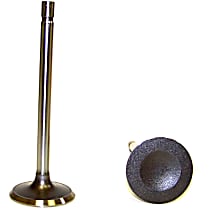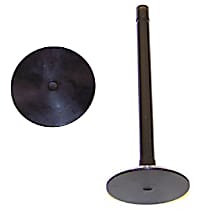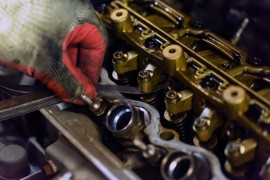{
"lazyNodes": false,
"abFitnotesFlag": false,
"abCrawlReviews": false,
"productOptionsCookie": false,
"orderDelayFlag": false,
"skipSessionCookie": false,
"covidMessage": false,
"fullTitleCookie": false,
"nrLoggerCookie": false,
"checkoutReviewCookie": false,
"productOptionSeqCookie": false,
"maintenanceFlag": false,
"bufferETACookie": false,
"multiShippingDiscountFlag": false,
"newFitmentFlag": false,
"surveyOptInFlag": false,
"crossSellFlag": false,
"skuMappingFlag": false,
"paySplitCookie": false,
"callDisableFlag": false,
"zipPaymentFlag": "u",
"hassleFreeReturn": false,
"lifetimeReplacement": false,
"cpn_off": false
}Need Help? Call Us1-866-529-0412
1991 Ford Mustang
1991 Ford Mustang Intake Valves
Refine by:
Shop Catalog
Showing 1 - 2 of 2 results
Sort by:
Part Number: DNJIV4113
Guaranteed to Fit
$9.99
Vehicle Fitment
- 1991 Ford Mustang GT 8 Cyl 5.0L
- 1991 Ford Mustang LX 8 Cyl 5.0L
Product Details
Notes : 1-groove; Nitride coated; 45.3 mm head diameter; 8.7 mm stem diameter; 128.8 mm overall length; IntakeWarranty : 1 year or 12,000-mile DNJ limited warrantyQuantity Sold : Sold individuallyProp 65 Warning :
![]() WARNING: This product can expose you to chemical which is known to the State of California to cause cancer and birth defects or other reproductive harm. For more information go to www.P65Warnings.ca.gov.
WARNING: This product can expose you to chemical which is known to the State of California to cause cancer and birth defects or other reproductive harm. For more information go to www.P65Warnings.ca.gov.
Part Number: DNJIV4104
Guaranteed to Fit
$11.99
Vehicle Fitment
- 1991 Ford Mustang GT 8 Cyl 5.0L
- 1991 Ford Mustang LX 8 Cyl 5.0L
Product Details
Warranty : 1 year or 12,000-mile DNJ limited warrantyQuantity Sold : Sold individuallyProp 65 Warning :
![]() WARNING: This product can expose you to chemical which is known to the State of California to cause cancer and birth defects or other reproductive harm. For more information go to www.P65Warnings.ca.gov.
WARNING: This product can expose you to chemical which is known to the State of California to cause cancer and birth defects or other reproductive harm. For more information go to www.P65Warnings.ca.gov.
Page 1 of 1 | Showing 1 - 2 of 2 results
Popular Products

DNJIntake Valve - Direct Fit, Sold individuallyManufacturer #IV4113
( Reviews) Questions, Answers
DNJ – OE REPLACEMENT INTAKE VALVES
Revamp your engine to prime condition with the OE-style fit and performance delivered by DNJ’s OE replacement intake valves. Since 1986, DNJ Engine Components has supplied the automotive a...
Product Questions & Answers
Q:Are these valves measure 2.02?
Justin S.
A:BEST ANSWERHi Justin, I'm glad to assist you. Our supplier, DNJ shows specifications as follows: nitride coated, 1 groove, 45.3mm head diameter, 8.7mm stem diameter, 125.5mm O.A.L, 4.942 length. For us to check carefully and be accurate on the part you need, please provide the complete details of your vehicle (year, make, model, submodel, 2WD/4WD, and engine size). The VIN would be helpful. Show less
Jeonino E.
1 Question, 1 AnswerView all Q&As >
Helpful Automotive Resources
P3449 Code: Cylinder 7 Deactivation/Intake Valve Control Circuit/OpenDeactivation/intake valve control circuits are solenoids that can temporarily disable the intake valve in their respective cylinder. They are vital to the cylinder deactivation system, which allows the engine to run with fewer cylinders than it usually uses. For example, a V8 engine can run in V4 mode, which produces
P3401 Code: Cylinder 1 Deactivation/Intake Valve Control Circuit OpenLow load conditions, such as idling or cruising on a highway, don’t require too much power from the engine, which means it’s unnecessary to activate all cylinders. In some cases, engines with six or eight cylinders will only require half the power.
Low load conditions, such as idling or cruising on
A Comprehensive Guide to Valve LashThe exact area where valve lash is measured will vary by engine design. For example, on overhead valve engines, valve lash is the distance between the tip of the valve stem and the rocker arm. On overhead camshaft engines, the measurement might be taken between the camshaft and tappet or
2-Stroke Engine vs. 4-Stroke Engine: Differences, Advantages, and DisadvantagesPower stroke refers to the single transition of the piston and its connecting rod between the top dead center (TDC) and the bottom dead center (BDC) positions inside the engine cylinder. The TDC is the closest position that the piston can get near the valve that allows gas to enter








